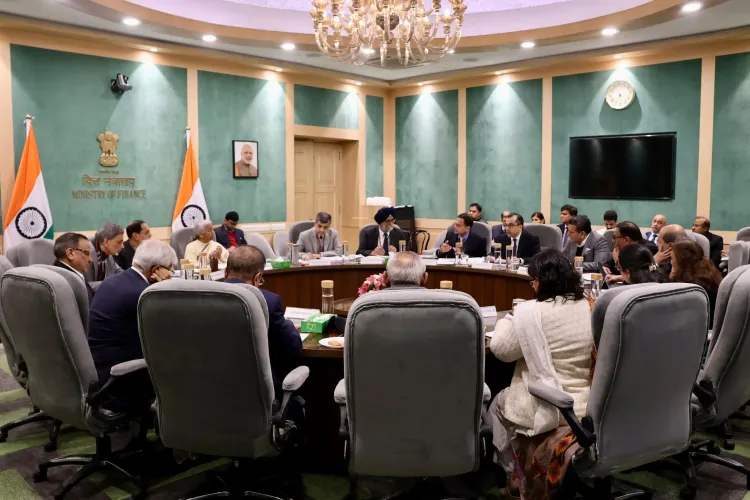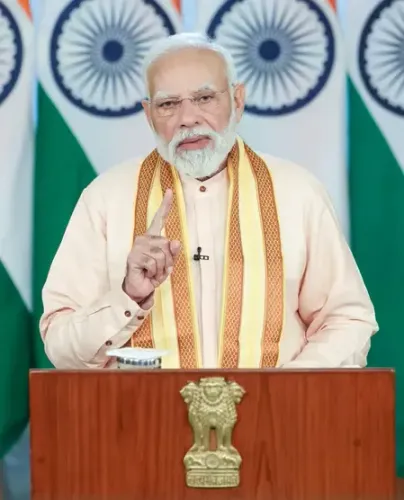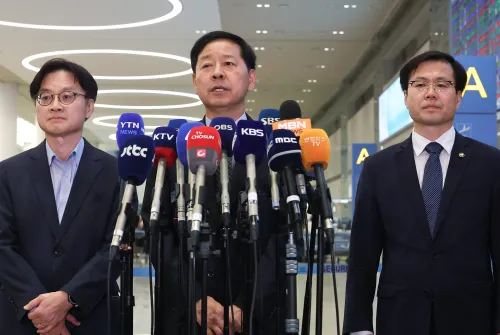Enhance Taxation Processes and Strengthen Manufacturing Through the Union Budget: PHDCCI

New Delhi, Dec 30 (NationPress) A streamlined tax framework can lessen compliance expenditures and elevate disposable income while stimulating consumer spending, stated PHD Chamber of Commerce and Industry (PHDCCI) President Hemant Jain on Monday.
This increased demand fosters business growth, propelling economic expansion. Furthermore, the alleviation of tax burdens can aid in relieving inflationary pressures, Jain remarked during a dialogue with Finance Minister Nirmala Sitharaman.
PHDCCI anticipates a considerable rise in the Union Budget, increasing from Rs 48.2 lakh crore in 2024-25 to over Rs 51 lakh crore for 2025-26.
The recommendations emphasized the need to rationalize the tax system, enhance the manufacturing industry, and establish a conducive environment for micro, small, and medium enterprises (MSMEs) to flourish, alongside a notable decrease in operational costs.
PHDCCI proposed to lower tax rates for individuals and Limited Liability Partnership (LLP) entities to 25 percent. This reduction would not only alleviate the financial load on individuals and businesses but also invigorate investments and economic activity across various sectors.
Jain underscored the importance of entirely eliminating the inverted duty structure presently affecting several industries, especially in sectors like cement, aluminium, steel, as well as the packaging material, paper, and paperboard sectors.
"The inverted duty structure results in higher expenses for domestic manufacturers, impairing their competitiveness on a global scale. Resolving these inefficiencies would significantly strengthen the manufacturing domain," he noted.
The industry organization further indicated that the ease of doing business in India must be enhanced and better implemented at the grassroots level. This involves lowering the operational costs, particularly regarding capital, energy, logistics, land, and compliance expenses.
According to PHDCCI, simplifying processes and reducing regulatory hurdles would facilitate a more favorable environment for businesses, promoting both domestic and foreign investment in India.
Jain accentuated the necessity for the government to bolster the manufacturing sector, augment infrastructure investment, and foster innovation.
The manufacturing industry presently contributes around 16 percent to the GDP, and "we should strive to elevate this proportion to 25 percent by 2030," he emphasized.
PHDCCI also recommended specific policy initiatives aimed at enhancing female involvement in the workforce. Currently, India’s female labor force participation rate is only 32 percent.
To secure inclusive growth, PHDCCI urged for targeted actions to boost women’s engagement in the labor market, thereby increasing overall economic productivity.








